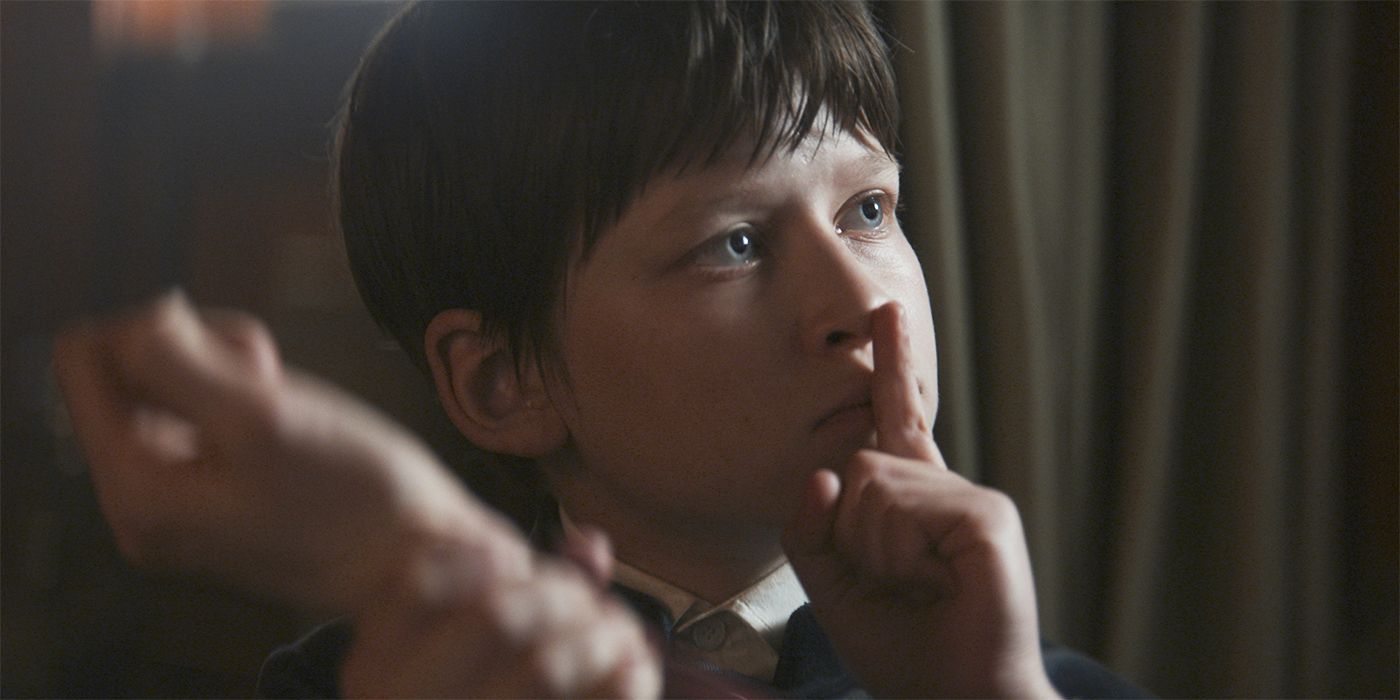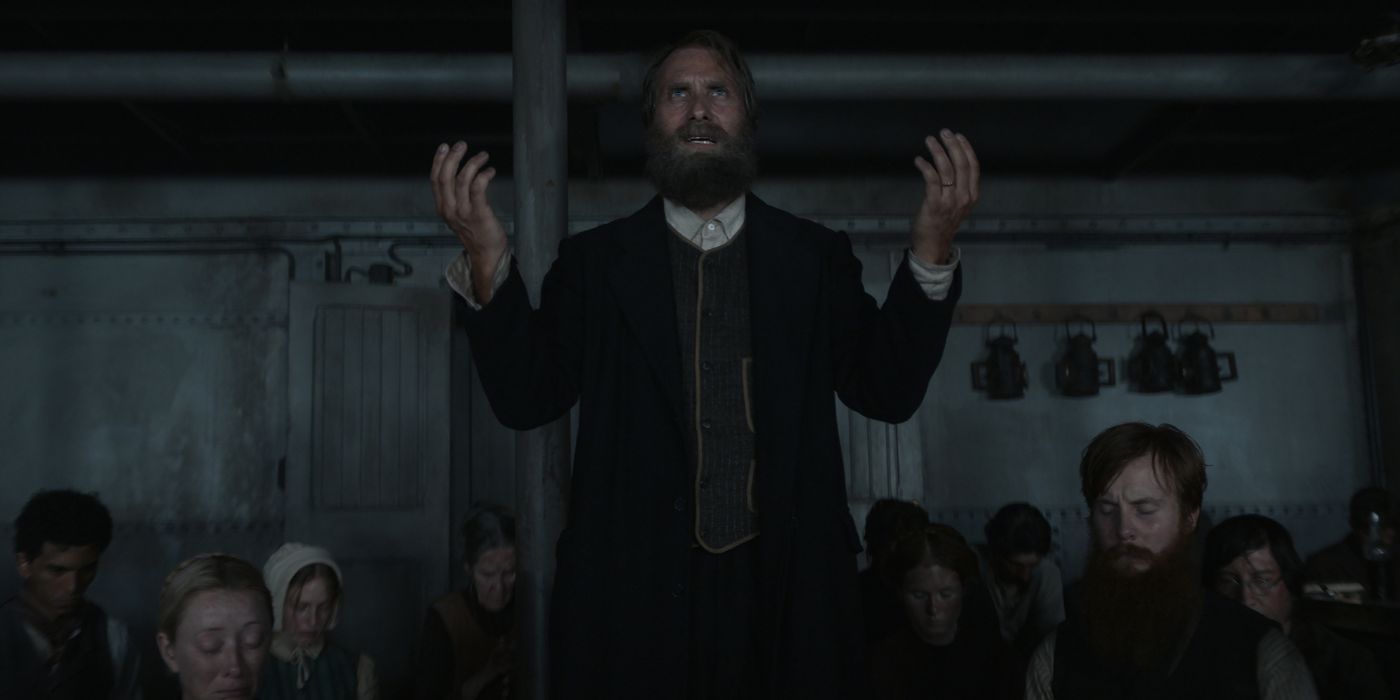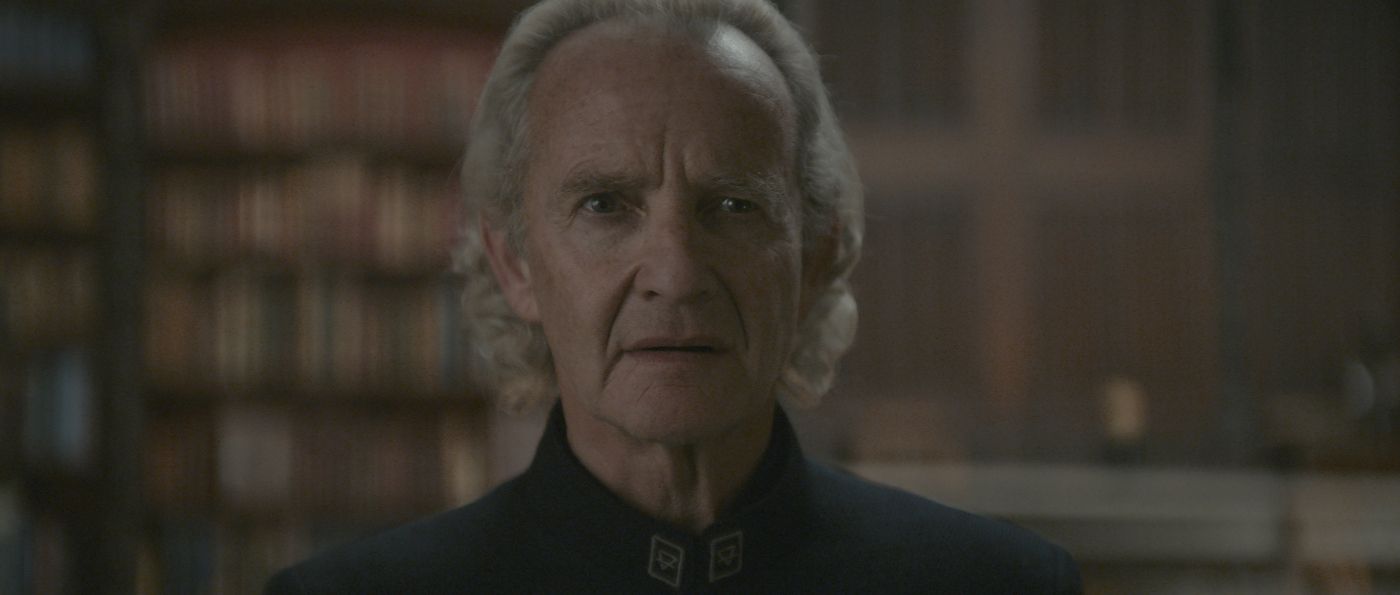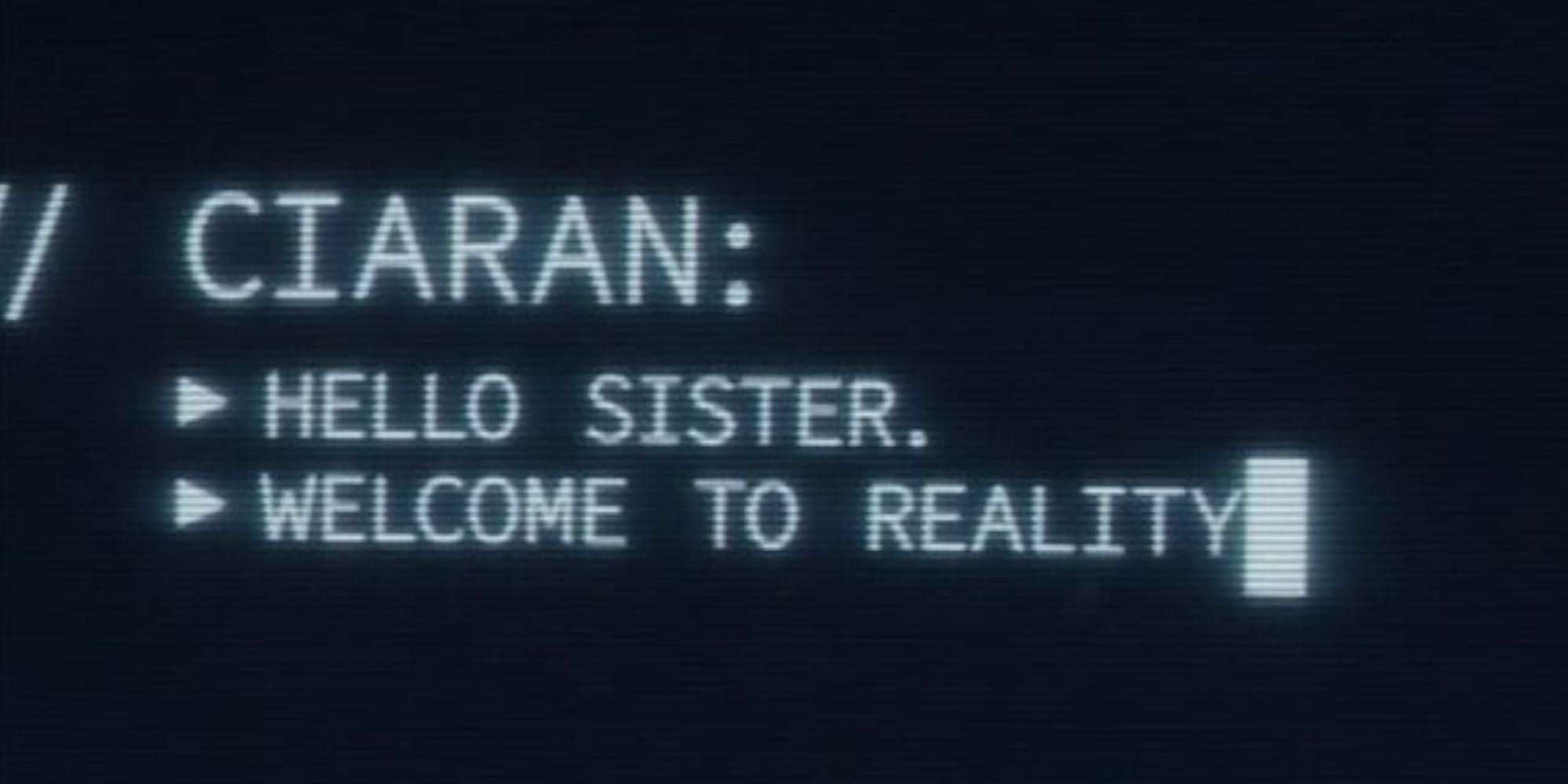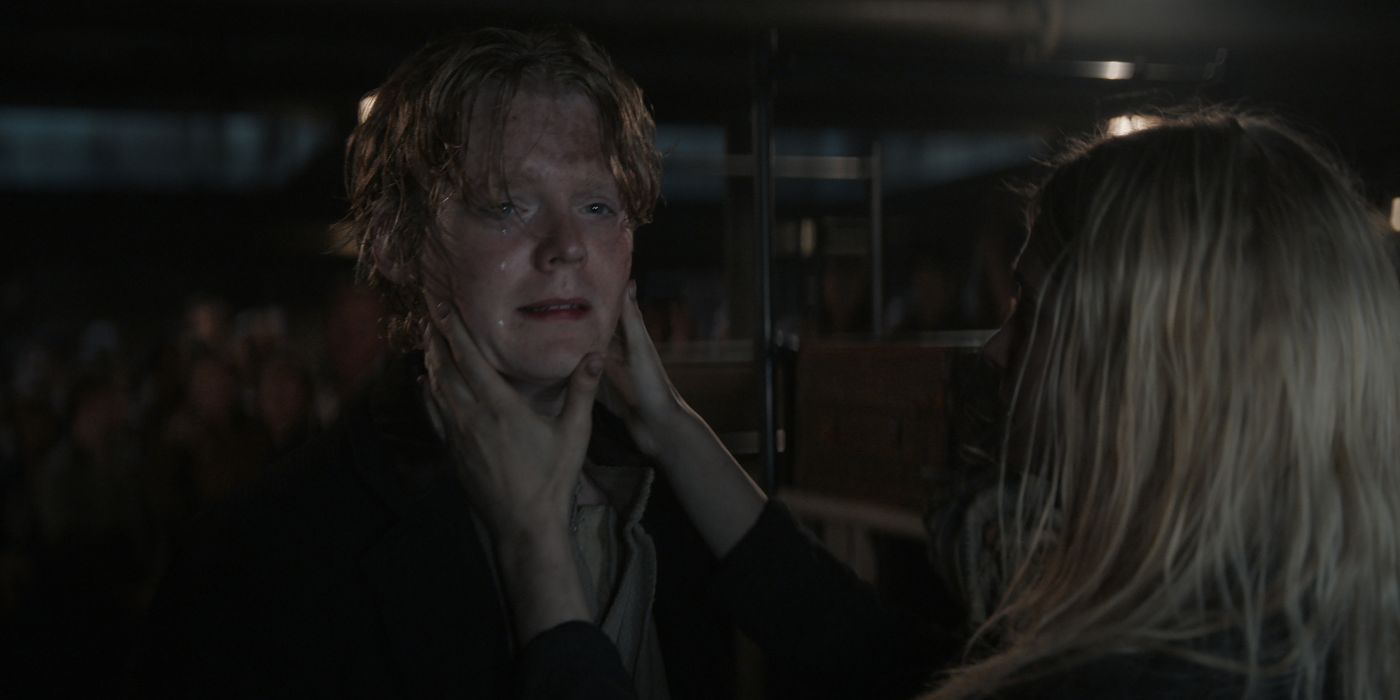Editor's Note: The following contains spoilers for 1899.
1899 is a show that tended to go places you weren’t expecting. And once you expected it to go somewhere in particular, it changed direction on you again. The entire show is centered around lies and misdirection, hiding its true nature from the viewer for as long as it can get away with it. Whether this worked in the show’s favor is debatable, but it undeniably made for a memorable viewing experience. And few things were as memorable as the show’s surprise ending, that not only was the Kerberos a simulation, but it’s a simulation that’s being run on a bunch of people in stasis on a starship in deep space. But for as memorable as that reveal was, could there have been a more compelling alternative?
1899’s Earliest Episodes Feel Extremely Lovecraftian
There was a Lovecraftian mystique to the earliest episodes of 1899. Like the works of H.P. Lovecraft and other authors that have expanded on the genre, 1899 deftly utilizes the ocean as a constant source of terror. There’s something innately scary about being out on the ocean, even on a ship as big as the Kerberos. When you're that far out at sea, you're cut off from the rest of the world. If anything were to go wrong, no one will come to save you. And given how much we still don't know about the ocean, it's easy to imagine any number of things going wrong, from freak storms to horrible sea monsters. 1899 hammers this home immediately by highlighting the disappearance of the Prometheus just a few months before, reminding viewers how hazardous such a trip can be, especially at this point in history. And when you throw thick fog into the mix, it creates a deep sense of claustrophobia that stacks on any thalassophobia (a fear of large bodies of water) the audience might have to really ratchet up the tension.
But it’s not just the looming threat of the ocean that makes 1899 feel especially Lovecraftian. The Kerberos was a ship full of mysteries even before it stumbled across the empty Prometheus. Nearly all the main characters are hiding something, and most of them were invited to the Kerberos under mysterious circumstances. The looming presence of all those secrets and past traumas is one of the defining thematic features of Lovecraftian horror, which often links the personal struggles of the genre’s protagonists to their ultimate revelations of cosmic insignificance. Often it is the secrets and traumas that the characters hold that make them most susceptible to the influence of the ancient and eldritch powers that seek to intrude on our world.
That’s not even mentioning the general aesthetic of Lovecraftian horror, which this show is steeped in. It’s set around the turn of the century, a little earlier (but not by much) than most traditional Lovecraftian horror. When we first meet Daniel (Aneurin Barnard), he’s climbing out of the sea in under the cover of darkness like a Deep One or other servant of the Old Gods. For most of the show, Elliot (Fflyn Edwards) doesn’t behave like a normal child. He’s almost entirely silent, and he’s got a supernatural relationship with the strange beetles scuttling about. Daniel and Elliot feel like the townsfolk of Innsmouth, who aren’t entirely human and know more than they’re letting on. And then there’s the Prometheus itself, which looks like a sunken wreck despite still being afloat, as if the sea had swallowed it and then spat it back out.
The Problem With 1899’s Simulation Reveal
But none of that was the case. The veneer of Lovecraftian horror was already starting to show cracks less than halfway through the season, and the back half of the show made it clear that there was nothing supernatural here, only a world of science fiction. This isn’t necessarily a bad thing; it would be foolish to deny that the mysteries that 1899 did choose to tell are compelling. But it did have a few unintended consequences on the viewing experience. The biggest of which is how much less important everything felt after the show made its turn into science fiction.
In the earliest episodes, everything has a question attached to it. What do the Pyramids mean? How can Maura (Emily Beecham) be on the Prometheus’ passenger list? Where did the boy come from? What happened to the Prometheus? How and why are there secret traumatic memory rooms underneath people’s beds? These mysteries felt big and momentous because we were still taking the world at face value. But once we know that everything is in a simulation, it all feels less significant. The Pyramid is just a visual motif that represents the code that defines the world around them. Daniel and Elliot are just two more people inside the simulation who happen to know it is a simulation. The weird and jagged landscape that Henry (Anton Lesser) resides in is coded to be that way and not some mystical other realm. The Lovecraftian mystique has been completely stripped away by the end of the season, and it teeters on the edge of feeling unsatisfying.
There’s always a risk to pulling an “it was a simulation (or more commonly, a dream) all along.” Upending the rules of the world that the show initially presented to the audience with a new or previously invisible set of rules is hard. If done poorly you might make the audience feel like they wasted their time, that the story they watched was a meaningless prelude to whatever real story is actually being told. 1899 doesn’t quite fall into that trap, though it’s hard to say definitively how successful it was since we’ll never get to see how Season 2 would play out. But the simulation reveal does make the show to lose something. It makes that sense of mind-bending unreality in the earliest episodes feel a little less compelling in retrospect. While the visuals of the traumatic memory rooms remain stellar, the geometry-defying quality they once had is gone. If it’s all just data on a computer there’s not actually any space to fold over itself, no geometry to defy. All the mysteries 1899 took such care to develop feel hollow because the show lied about what it was.
There’s no guarantee that 1899 would be a better show if it developed its mysteries in the direction of more Lovecraftian answers. Nor is there anything innately wrong with its decision to deceive the audience as to what's really going on. But sticking to the Lovecraftian vibes it started with easily could've led to a show that feels more consistent, and less like a show the creators were using to see how many times they could pull the rug out from under their audience. The eeriness of the earliest episodes was very effective, but there’s a bitter taste to it now. What was the point if none of it turn out to be real anyway?

